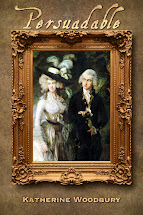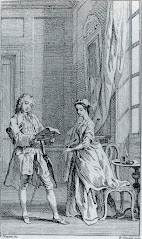 |
| One of my favorite Bones-Booth moments is when Sweets |
| insists that they do an outside exercise together. Bones & Booth |
| behave like mature equals, more than Sweets & his partner. |
On Votaries, I discuss characters in books, good, bad, and...eh.
Lately, I reached "C". I analyze Alice from Alice in Wonderland by Lewis Carroll and Bren from C.J. Cherryh's Foreigner series.
On this blog, I often comment on the same characters' love lives. Alice--despite various opinions about Lewis Carroll and Alice Liddell--doesn't have a romance, and Bren--who has an Atevi partner--is mostly concerned in the later books with politics and survival and friendships.
So I am reposting about two romance couples, one created by KJ Charles!
* * *
Many romances employ rescue missions whereby one character decides to rescue/save another. The romances are about what one character can do for the other.
I'm not necessarily opposed to these plots, so long as I am left believing that the relationship is reasonably functional. Everybody got what they signed up for.
However, I admit, I absolutely adore those relationships where I believe that the relationship is equal, that the oddities of each partner have been taken into account and dismissed or fully accepted, that the author has in fact achieved a 50/50 balance (which is difficult in fiction and in real life):
 |
| Possible cover from Goodreads |
Dominic-Silas
From KJ Charles's
Seditious Affair, Dominic and Silas are equals despite the differences in background, education, and money. They both adore books. They both admire each other's honesty and goodwill, even if they utterly disagree over the other man's politics. And it all comes down to their ability to stand outside themselves objectively and accept the other person as he is.
Dominic likes to be dominated during sex. If Silas was an even slightly different personality, this aspect of their relationship would also be their downfall. If, for instance, Silas allowed politics to bleed over into the sexual arena, if he used dominance to bully, if he perceived Dominic's needs not as an individual quirk but as an opportunity to mock and deride, the relationship would falter and die within a few months. Silas would be the opposing side to Lord Richard's overly patronizing coin (Lord Richard is a good, flawed character).
Instead, to Lord Richard, Silas barks, "I said,
you won't [make Dominic behave]. You've hag-ridden [him] for fifteen years, and I won't have you giving him another dose of what's wrong with him. It's not his doing I'm mixed up in this [seditious affair], and you,
friend, you aren't making me into a stick to beat him with because you don't like his ways."
He defends Dominic. Dominic defends him. In the end, Silas will get his bookstore back. And he'll honor the person loaning him the money. And they will have the companionship they both desire.
 |
| The younger versions. |
Diego-Mark
Many of L.A. Witt's Anchor Point novels revolve around military men with problems: PTSD, physical ailments, alcoholism, etc. Generally speaking, I appreciate how she often solves the issues
without solving them. That is, the couple learns to deal--the issues don't vanish.
Diego and Mark have their issues. What I liked about
Once Burned specifically is how willing Diego and Mark are to allow the other person to be different. Diego is not religious; Mark is. Diego is not military anymore (against his wishes); Mark is. Good grief, they even like different sports teams!
The issue at the end is not
Hey, can you deal with my crap? The issue at the end, interestingly enough, is forgiveness,
not of each other but of the past.
Crappy things happened to me. Am I going to let that control my relationship with you?
Individually, they both decide,
No.



















































